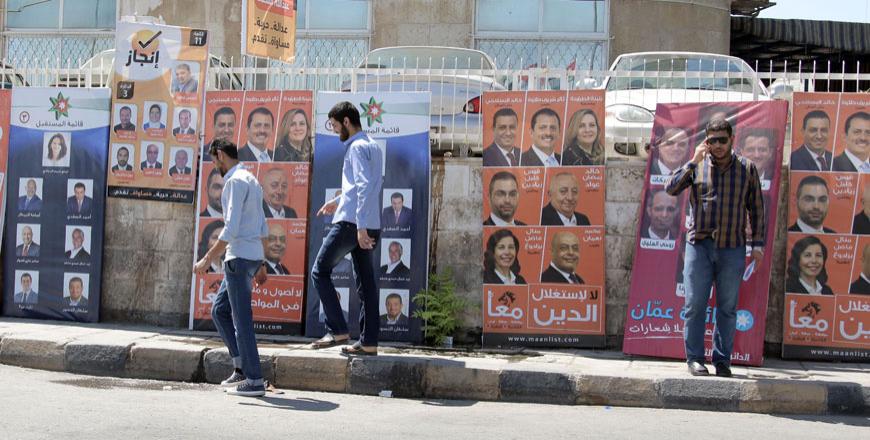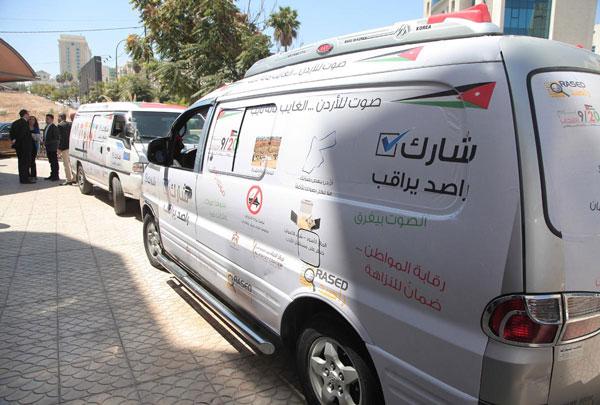You are here
Majority of parliamentary hopefuls lack clearly defined platforms — study
By JT - Sep 06,2016 - Last updated at Sep 06,2016

Pedestrians walk past election campaign posters in Amman on Tuesday (Photo by Osama Aqarbeh)
AMMAN — The majority of parliamentary campaigns for the September 20 elections are only focusing on general topics, according to a study released Tuesday by the Integrity Coalition for Election Observation.
“Most of the lists [do] not deliver specific or applicable messages. They merely [use] loose slogans that can’t be translated into clear and well-defined agendas,” a statement from the coalition said.
“Most campaigns [focus] on the economic and developmental aspects. Twenty-one per cent of the topics were focused on those two aspects,” the statement added.
“The least addressed issues were those related to national unity (2 per cent), and issues related to either tribal topics or civic state (3 per cent for each),” it added.
The campaigns also focused on slogans related to democracy and human rights (15 per cent); local social issues scored the same, followed by issues related to poverty and unemployment (10 per cent).
Only 7 per cent of the campaigns focused on topics related to justice, integrity and anti-corruption.
To prepare the study, the coalition monitored electoral campaigns in all districts.
“Quantitative monitoring forms were used to document the adherence of lists and candidates to the regulations and instructions relevant to campaigning, whereas qualitative monitoring forms were used to analyse the contents of campaigns and the discourse of candidates and lists,” according to the statement.
It added that “the coalition’s monitors recorded 100 rallies that included inaugurations of candidates’ headquarters and meetings up to” September 3.
Sixty-six per cent of the campaigns “clearly addressed issues related to women”, whereas 24 per cent “marginally mentioned” them.
Moreover, in 10 per cent of the campaigns, no mention of women-related issues was made.
Thirty-seven per cent of the campaigns “clearly addressed” issues related to minorities, while 43 per cent “marginally addressed” them.
Meanwhile, only 7 per cent of the campaigns strongly focused on the issue of refugees, while 53 per cent “marginally mentioned” this topic and 40 per cent did not address it at all.
The study found that posters and banners are the most common form of promotion used by candidates (93 per cent), followed by social media (81 per cent), brochures (67 per cent), field visits (50 per cent) and phone text messages (25 per cent).
So far, 1,264 candidates are standing for elections on September 20 after six candidates withdrew from the race and one died.
The final tally of candidates is expected to be announced on Wednesday evening.
Related Articles
AMMAN — Some 258 female candidates are running in the upcoming elections, up from 215 in the 2013 polls, Sisterhood Is Global Institute (SIG
AMMAN — Women’s organisations should work to develop a discourse that appeals to MPs with diverse views, according to Salma Nims, secretary
AMMAN — The Jordan Media Institute (JMI) on Monday released its final report on media coverage of the September 20 parliamentary elections.&
















